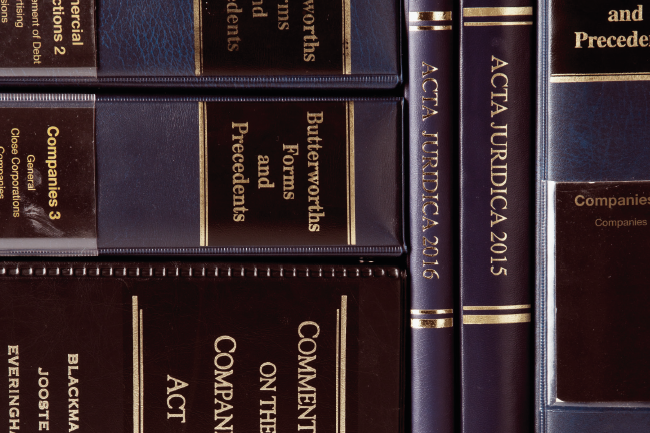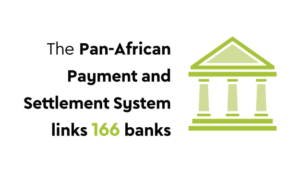‘Corporate governance is something of a buzzword right now but it’s actually quite simple,’ says Christina Pretorius, director at Norton Rose Fulbright. ‘It’s governance in a corporate environment. It’s a system of structures and frameworks that a company needs to operate within; principles that your conduct has to fall within. It’s a framework rather than a specific rule.’ She adds that it is more about how you do business than what you actually do, and ensuring that the correct information reaches the correct people, especially as far as decision-making is concerned. ‘It is like the conscience of the organisation. It really is what you, as an individual with a good moral compass, would be doing but transferred onto a corporation,’ she says.
Joanne Henstock, executive director: gover-nance, integrated reporting and sus-taina-bility at EY, says: ‘Corporate governance is an element of corporate leadership activity that is squarely focused on an entity’s strategic leadership.’ She says that, in terms of the King IV Code of Corporate Governance, it is about ethical and effective leadership of the entity in the context of its business purpose where purpose and strategy are linked to the sustainability of the busi–ness in the short, medium and long term.
The King Code is the dominant document guiding corporate governance in South Africa. It has been called the most effective summary of the best international practices in corporate governance. It was first issued by the King Com-mittee on Corporate Governance in 1994 and is owned by the Institute of Directors in Southern Africa. The current version, released last year, is the fourth revision (King IV).
Daniel Malan, director of the Centre for Corporate Governance in Africa and senior lecturer: business ethics and corporate governance at the University of Stellenbosch Business School, defines corporate governance as ‘the system by which organisations are directed and controlled’, calling it ‘the backbone of many organisations’. However, he says, because not all organisations are necessarily committed to governance – and compliance should be monitored and enforced – a strong regulatory framework is also required.
‘Because corporate governance is based on fundamental ethical principles such as honesty and accountability, a regulatory framework is only a part of the overall corporate governance system,’ he says.
Henstock says the regulatory framework for corporate governance is critical. ‘The regulatory framework sets the boundaries for minimum conduct standards applicable to different types of entities, and allocates responsibility to monitor adherence to those standards to an appropriate regulatory authority,’ she says. However, Henstock cautions that the regulatory framework is only one element of ensuring a sound corporate governance environment at national or regional level.
She says that although it is important for corporate entities to commit to a regulatory framework that sees them making a positive contribution to society while pursuing their corporate objectives, that part of the corporate governance environment is well served by existing voluntary standards and codes of behaviour, including the King IV Code.
Where good corporate governance fashions a transparent set of rules and controls in which the incentives of shareholders, directors and officers are aligned, poor corporate gover-nance can have vast and varied consequences. It may lead people to doubt a company’s reliability, integrity or obligation to share-holders. It could lead to ill-informed or bad decision-making, increase risk and affect investment.
‘The purpose behind corporate governance is to make good decisions,’ says Pretorius. ‘At the end of the day, it’s all about instilling confidence in a business – confidence by investors, shareholders and other stakeholders. If they are confident that a company is doing what it’s supposed to do, they are more comfortable investing.’
According to Henstock, one of the overriding reasons for promoting good corporate governance is to demon-strate a sound economic environ-ment for doing business, and to attract investment to underpin economic growth and development on a national and regional economy basis. ‘Without sound corporate governance in place, and properly evident to investment communities, these goals are, practically speaking, unattainable in the medium and long term,’ she says.
A company with good corporate governance could also have a competitive advantage over others, if for no other reason than it will see greater investor interest and have the correct information readily available to enable better decision-making. Pretorius certainly thinks this would be the case. ‘Good corporate governance discourages silo conduct because it gives decision-makers insight over the entire business,’ she says. ‘It also limits rogue operators within corporations.’
For companies wishing to establish a strong governance framework, where should they start? Pretorius says the first thing to consider is at what level what decisions need to be taken. ‘You then need to ensure that you understand, and that everybody in the organisation understands, where what kinds of decisions are taken. That leads to accountability,’ she says.
Henstock suggests beginning by looking to the existence of good role models. ‘South Africa’s regulatory framework, standards and codes provide a good starting point for emerging economies in Africa,’ she says. A key success factor is to look to develop a corporate governance environment that contains common themes or standards of conduct that can be applied or adapted across all sectors of the economy, such as the public and private sectors and large and small entities.
‘Otherwise corporate governance will be applied only selectively and that does not produce optimal outcomes at all,’ she says.
The government also needs to encourage the development of a sound or modern corporate governance framework and work to embed good corporate governance into all organs of state or state-owned businesses.
For Malan, seeking legal input when drawing up corporate guidelines and frameworks is important because governance should always be understood within a regulatory framework. ‘However, governance is about both directing and control, and therefore legal issues and compliance should not be overemphasised,’ he says. Henstock agrees. ‘Legal input is important because the entity’s selection of corporate governance practices needs to recognise and comply with the existing or established regulatory framework for corporate gover-nance.’ She notes that the legal input is only one element of the design of a robust corporate governance framework for an entity.
‘For example, among other important sources of information and guidance for establishing the governance framework of an entity, is the identification of a clear, sound business purpose linked to the notion of sustainable development and good corporate governance. In other words, factors in the realm of ethical and strategic considerations.’
As to whether the King Code could inform discussions in other jurisdictions in Africa and whether these might take their lead from South Africa, Henstock believes they could. ‘On the African continent, South Africa’s corporate governance framework is recognised as being well-established and soundly conceived, including both the regulatory framework and voluntary standards and codes available for adoption [King IV Code],’ she says.
‘Many other African countries have recently been progressing development of their corporate governance frameworks at a fast pace to align to international standards, while still maintaining relevance to their unique national governance environments.’
Henstock notes, however, that it is important for African countries to develop or adopt corporate governance frameworks that are suited to their national environments and the state of development of their national economies. ‘In this sense, the King IV Code is a great example of getting that right – it is a code that is uniquely well suited to the emerging economies of Africa,’ she says. In her opinion, Namibia, Kenya and Mauritius are among the front-runners in advancing good corporate governance frameworks in Africa.
Pretorius agrees that the King Code might stand as a blueprint for good corporate governance. ‘We all borrow from each other and I don’t think King IV will be any different,’ she says. ‘For example, the listings require-ments of the JSE are well known – and the JSE is an award-winning exchange. Those initial listings requirements were based on the London counterpart. Lots of African exchanges borrow heavily from the JSE. There is no reason why a corporate governance framework cannot do the same thing.
‘A guide or framework, or a code of conduct, can easily be adapted to local markets. King IV may be a useful starting point for other jurisdictions. At the end of the day, the right thing to do is generally the right thing to do across jurisdictions, regardless of where you operate.’



















